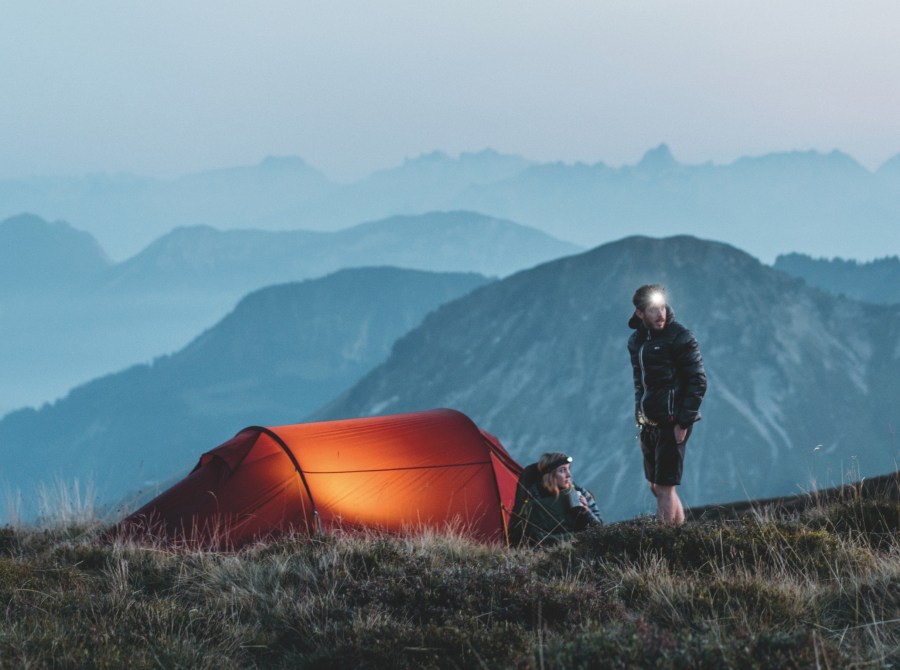Five hikers tell us how they confronted their first-time jitters and discovered the joys of sleeping in the wilds.
In the May issue of The Great Outdoors we celebrate the joy of lightweight, leave-no-trace camping in wild places.
The prospect of sleeping in the wilds can be a little daunting – but we all have to start somewhere. So we spoke to five hikers, of different levels of experience, and asked them to share their stories and perspectives.
The first two are recollections of ‘eventful’ first-time wild camps, with valuable lessons learned on the way! The final three are reflections on some common concerns, and how the individuals involved overcame them.
We hope these personal perspectives give you a bit of confidence to take those first steps into the rewarding world of ‘wild sleeping’. Check out our answers to the most common beginner wild camping questions if you’re looking for a few more detailed pointers.
“I had ridiculously overpacked”
Getting into wild camping and backpacking often involves learning from mistakes. Rhiane Fatinikun, founder of Black Girls Hike, recalls her first wild camping experience – and what she took away from it.
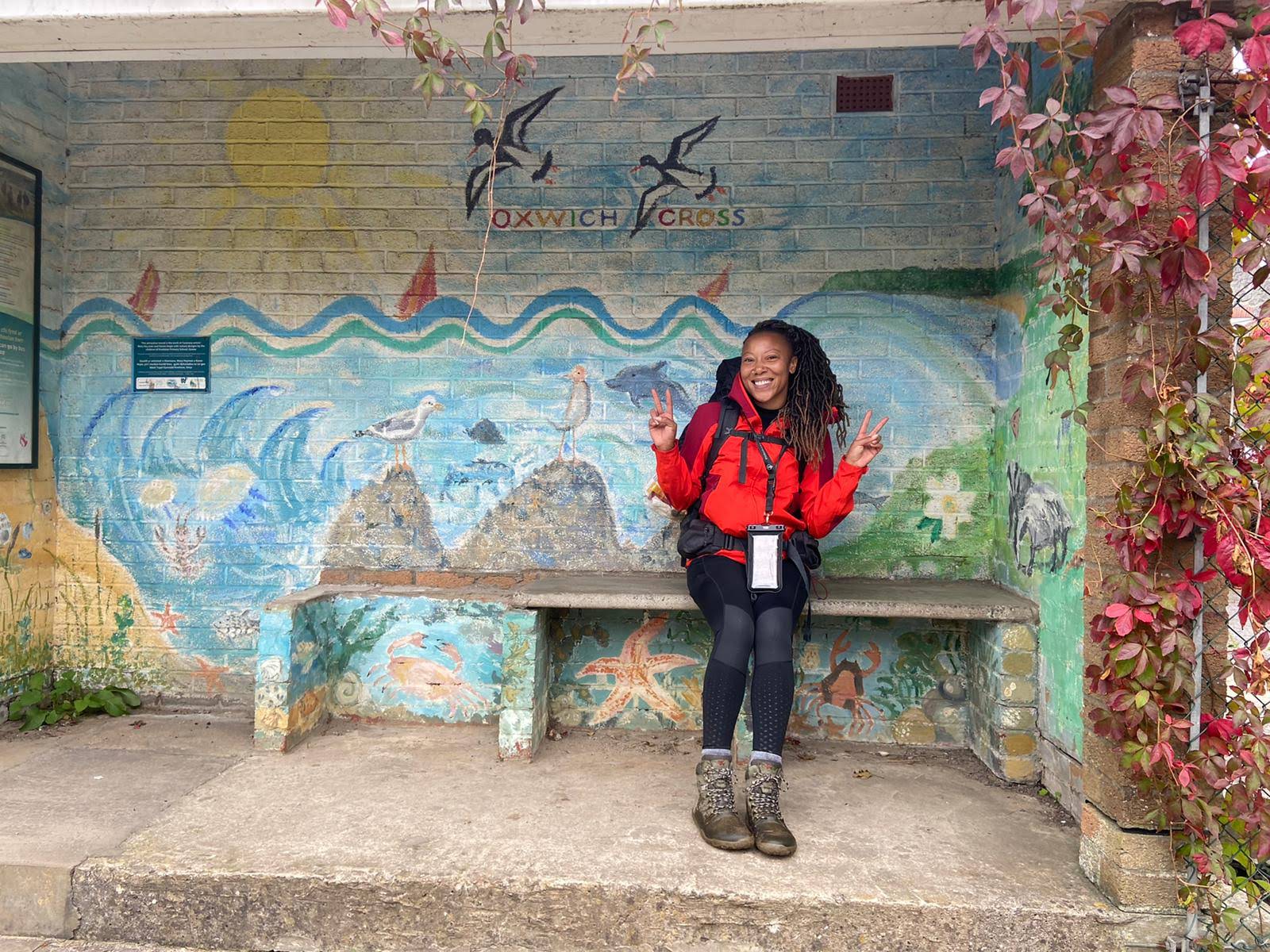
Rhiane on her way to wild camp in South Wales. Photo: Rhiane Fatinikun
As someone new to the outdoors, being a novice at everything just makes it more of an adventure. Last year I decided I’d walk a section of the Wales Coast Path and wild camp along the way with a friend. After weeks of research, endless scrolling, reading blogs, kit reviews and recommendations, I felt ready. Pitch late, leave early and pack light, that’s what all the advice said.
Not long after setting off, I realised that I had ridiculously over-packed: my bag was 15kg and included a full-size chopping board and several other whim purchases I thought I’d need. I had ambitions of fine dining outdoors.
We reached the spot where we had planned to camp on the first night, but struggled to find a suitable pitch, and ended up pitching our tents using our head torches. I pulled out the stove, but couldn’t figure out how to use it. Talk about all the gear and no idea! Our saviour ended up being YouTube; I had to watch an instruction video. Suddenly all the cous cous and quinoa that had been weighing us down didn’t seem so appealing and I started regretting my choice of food.
Once inside my tent, the summer sleeping bag that I swapped my heavier one for to save space started to feel like a bad idea because I was freezing and I didn’t have a sleeping mat; another rookie error. While lying awake, too cold to sleep, I was looking at hotels for the next night and was very close to booking one.
The next morning, we were up and packed by 7am off in search of hot food. We decided to book a designated campsite for the night to save us struggling to find somewhere to pitch.
I know safety is a big issue for women in the outdoors, but I wasn’t worried about that because I was with my friend. It’s unlikely I’d wild camp solo, but not because of safety issues; I like company and to me feels like more of an adventure when there’s two of you. You get a real sense of freedom when you’re wild camping, and I generally feel safe in the outdoors. It’s not people I worry about, it’s injuring myself.
We ended up cutting the trip short in the end. I got a huge blister, walking became uncomfortable, and the discomfort just became a distraction. We had a brilliant time though; the blister saga just added to the adventure and we’re planning to go back.
So, what did I learn from my first trip? Don’t overpack; do your research; invest in lightweight kit, and practise using it before your trip so you enjoy every moment. Nobody starts as an expert in anything – it’s all trial and error – but ultimately, everyone is more capable than they think.
“Nothing has quite beaten the rush of that first experience”
Carey Davies, editor of The Great Outdoors, also takes a look back at his first wild camp – and the lessons he learned.
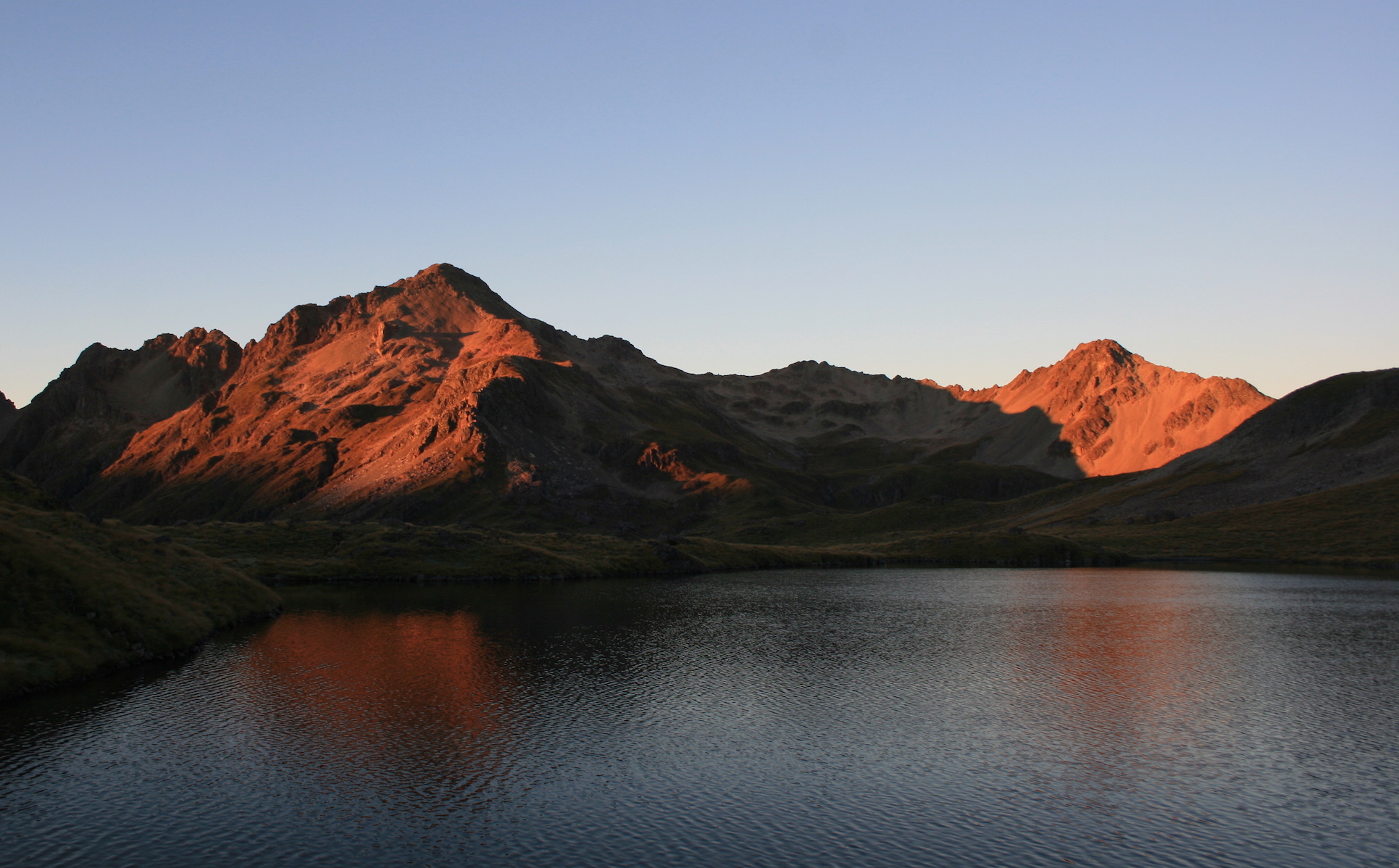
Sunrise over Lake Angelus. Photo: Carey Davies
My first proper attempt at ‘wild camping’ was not what you’d call a total success. But it remains the best camping experience I have ever had.
I was a ‘gap year’ traveller working for a few months in the town of Blenheim, on New Zealand’s South Island. I managed to persuade a fellow grape-picker called Inaki, a gregarious Chilean, to accompany me for a two-day excursion into the nearby Nelson Lakes national park, which hosts mountains of almost Pyrenean scale.
Both of us carried packs that were ludicrously overladen, but neither of us had any equipment that was even halfway decent. All we knew was that we wanted to spend a night up high in the mountains.
We set off too late in the day, and as we clinked and clanked our way higher and higher along the spine of Robert Ridge, with the hours ticking away, I fought a rising panic that we’d bitten off more than we could chew. But we just about made it to the shore of Lake Angelus, a beautiful 5,000 foot-high tarn cradled by a bowl of mountains, in the last dregs of the light.
A cold, sleepless, and horribly uncomfortable night ensued. But when the warm morning sun finally trickled like honey over the tent, I walked out to the most beautiful morning of my life. Bright Southern Hemisphere sun lit the silver limestone summits and golden tussock around us, and for the first time I experienced that feeling of soul-cleansing clarity that you only really get in the first hours of the day, in some high and rocky place, when the day is new and the world seems to brim with possibility.
I have got a lot better at wild camping and backpacking since then, but nothing has quite beaten the revelatory rush of that first experience. My body was in bits, but my soul soared.
Your first wild camp doesn’t have to be an ordeal, though. My advice would be to do your research, don’t be over-ambitious, and ideally tag along with someone more experienced. Do all the things I didn’t!
“I use my two brains”
Eleanor Marshall, a PhD student from Rotterdam, tells us how she overcomes her irrational fears.
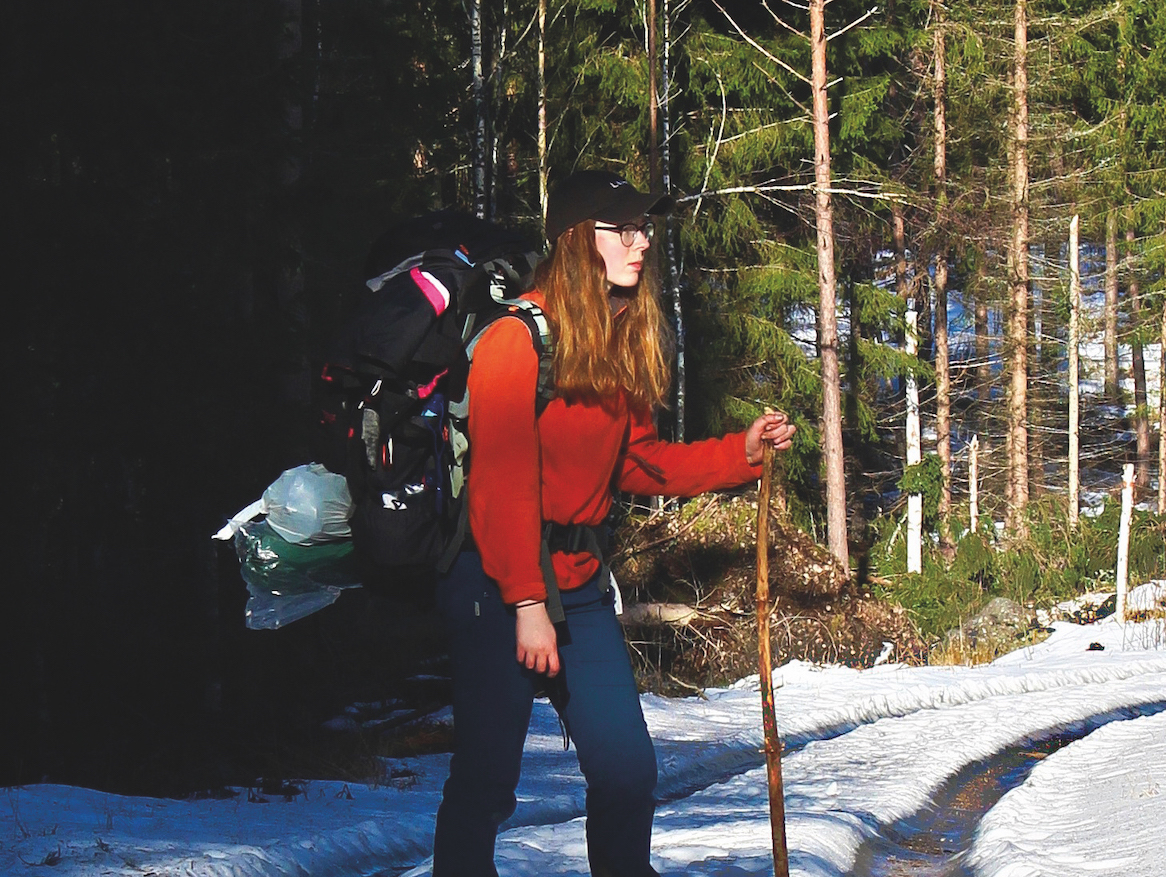
Eleanor on a wild camping trip. Photo: Eleanor Marshall
“My biggest fear is my imagination, as the dark and solitude play tricks on my mind. Was that sound a murderer? A wild boar? A primordial beast? It’s easy to think something terrible or paranormal is about to happen. I once woke up in the middle of the night to the sound of alien ray guns (it turned out to be ice cracking on a frozen lake) and was convinced extra-terrestrials were about to abduct me for probing experiments.
But I managed to overcome these nightmarish imaginings by calling it my ‘two brains’. The illogical brain swoops in first conjuring up the madness, but then the logical one takes over and calmly explains the reality. I let logic win and then sleep like a baby.”
“Having good kit helped keep me happy”
Bekah Cork, an orchestral tour manager from Glasgow, on how she deals with weather worries and period fears.
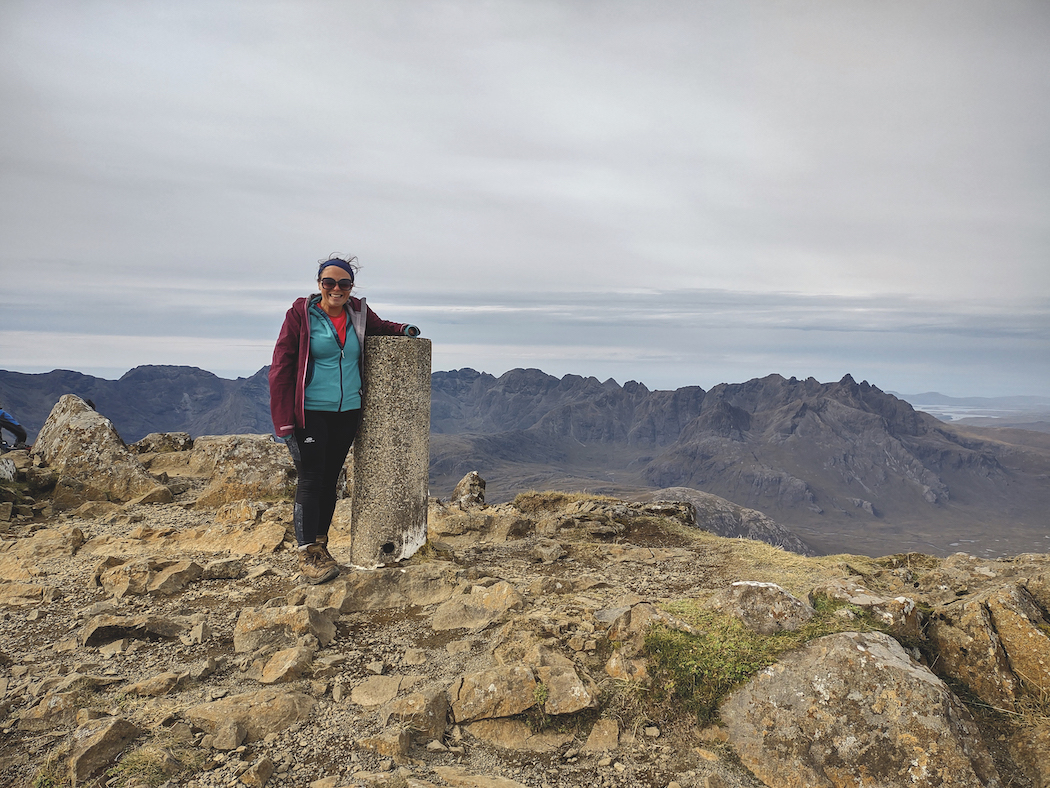
Bekah Cork on Bla Bheinn, Skye. Photo: Bekah Cork
“I’ve always been petrified of bad weather while wild camping. I worry about being freezing cold, getting soaking wet or just feeling utterly miserable on a rainy mountainside. But these fears have always proved much worse in my head than in reality.
“In general I’ve always enjoyed wild camping, despite being negative and sometimes believing that I’d hate it. Having good kit, such as a waterproof tent and warm sleeping bag, helped keep me happy – and then it was just about staying positive.
“Another issue that only affects women is dealing with periods. There’s no easy solution to this, and I’ve cancelled some trips because of it, but I like to think it’s not an insurmountable problem.”
“I set up late and pack away early”
Harry Smith, a trainee solicitor from Kent, talks about how he deals with the fear of getting ‘caught’
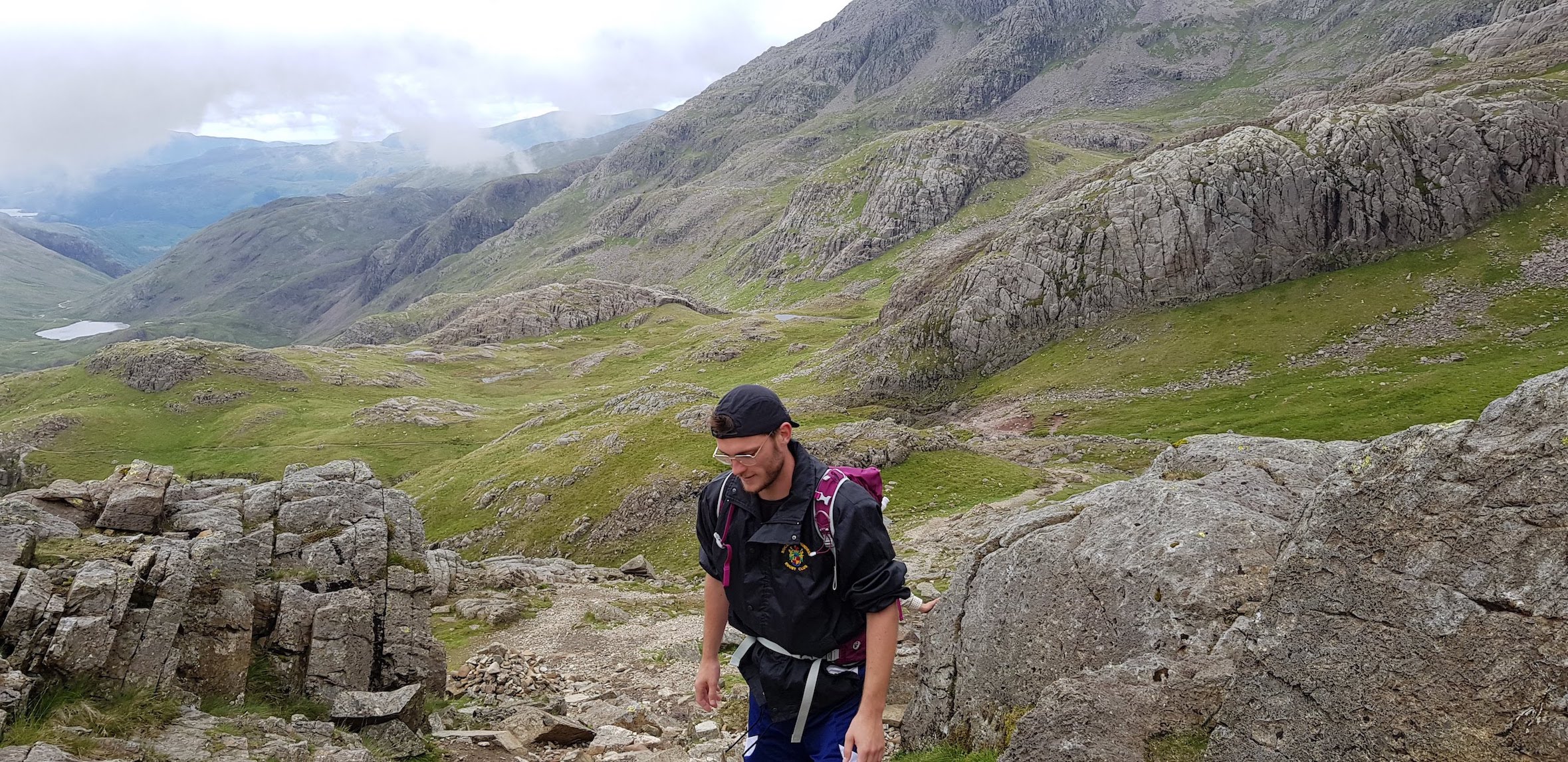
Harry Smith in the Lake District. Photo: Harry Smith
“On my very first few wild camps, and still now, my biggest fear is getting in trouble for where I am and what I’m doing. It’s always a concern for me and there’s no magic wand to make it go away. But I manage and mitigate the worry by picking sensible camp spots, setting up late and packing away early.
“If I’m particularly concerned, I’ll sit around for an hour or two without fully unpacking to assess how frequently, if at all, people pass the area. I’ve never actually been caught or told to move on, so I always try to remind myself of that fact too.”

